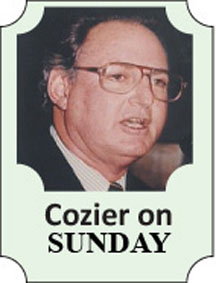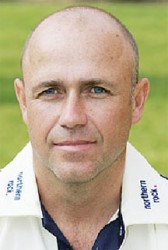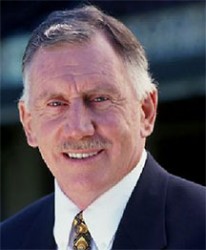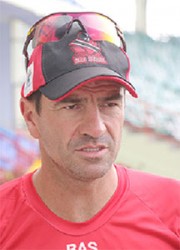IAN CHAPPELL once described coaches as vehicles that ferry cricket teams from hotel to ground and back; by the former Australia captain’s definition, the best coach would be a Japanese by the name of Toyota.
Times have changed. Somewhat behind all other sports, even cricket’s skeptics have come round to accepting the idea of a team coach. Now every school, minor club and first-class and Test squad has one.
Not only that. At the professional level, they have specialists to deal with bowling, batting and fielding; the Melbourne Stars in Australia’s Twenty20 Big Bash even have a “chief hydration officer”.
 There are coaches of every nationality scattered across the cricketing map for every format of the game.
There are coaches of every nationality scattered across the cricketing map for every format of the game.
The Twenty20 Limacol Caribbean Premier League (CPL) is one such tournament. Unlike the Indian Premier League (IPL), the Big Bash, England’s Blast and others which are all run by their national boards, the CPL is owned by Digicel, the Irish mobile phone giant, operating under license purchased from the West Indies Cricket Board (WICB) in 2012.
For its second season, it has assigned five new foreign head coaches to its six franchises and introduced the former Australian Test player and Sri Lanka coach, Tom Moody, as director of cricket. The post of operations manager, held last season by the Nevisian Carlisle Powell, has been scrapped.
In its first year, it used icons from the golden age of West Indies cricket – Sir Viv Richards, Sir Andy Roberts, Gordon Greenidge and Desmond Haynes – as head coaches. They have now been designated “mentors”, a none too subtle difference.
The only combination that remains the same is the West Indian pairing of Roger Harper and Sir Curtly Ambrose with the Guyana Amazon Warriors.
The Englishman Paul Nixon was the only foreign coach last year; his Jamaica Tallawahs took the title. He has been replaced by Mickey Arthur, one-time national coach of his native South Africa as well as Australia.
Tim Nielsen, Arthur’s predecessor with Australia, has taken over the Antigua Hawksbills. Simon Helmut, also Australian with experience in the IPL and the Big Bash, is in charge of the Trinidad and Tobago Red Steel, Robin Singh, the Trinidad-born Indian, of the Barbados Tridents. Matthew Maynard was promoted from assistant with the St. Lucia Zouks in 2013 to chief in 2014.
Their understudies are all West Indian. Among them is Carl Hooper, the batting stylist of over 102 Tests between 1987 and 2002; he was flown in from his home in Australia to be with the Hawksbills.

Galling as it may be to West Indian pride in a sport that once typified these tiny islands’ excellence, such an arrangement is not surprising.
Perhaps those who call the shots in a league prefaced with the word “Caribbean” would have preferred a few more from the region; they seemed unconvinced that such candidates measured up to their standards.
The problem is the uncoordinated approach to coaching from territory to territory in the West Indies. WICB’s head coach, Ottis Gibson, complains that players arrive at the highest level brought up through an assortment of processes.
Last November, the WICB brought in a complete outsider with no preconceived ideas to make a thorough assessment of the domestic cricket structure. Richard Pybus, the Englishman with a solid reputation in coaching and organization in South Africa, was made director of cricket.
New to the complexities of West Indies cricket, he sought advice and suggestions from dozens of those involved in every aspect of the game – past and present players, administrators, umpires, journalists, and

regular fans – in preparing a comprehensive report for the WICB.
On the strength of his research, he recommended the appointment of a coaching manager “to oversee and implement coaching programmes regionally”, in other words for everyone to be singing from the same Karaoke screen.
This would be complemented by what he termed “an elite coaches pathway”, identifying current and former players for fast-tracking into the role.
It is a start to raising standards. In the meantime, the only international West Indian coach apart from Gibson is Phil Simmons, the power-hitting opener of the Nineties, with Ireland, the long-standing No.1 among the affiliate teams.
There is another motive for CPL’s preference. While it lacks the IPL’s financial power, it is using it as a template.
It does not have the IPL’s benefit of a window free of international matches, as agreed to by the ICC, so its scope for raising high-profile foreign coaches and players is limited.
Those it can contract stamp the CPL as an international brand. Added to the typically Caribbean carnival backdrop that provides its slogan, “The Biggest Party in Sport”, it makes it an easier sell to television networks.
Apart from its five coaches this season, it has again managed to find 21 players from Australia, New Zealand, South Africa, Pakistan, England, Ireland and Sri Lanka (22 if and when Kevin Pietersen eventually turns up) to mix in with the West Indians.
Pybus has identified a significant snag to outside coaches. The Australians Bennett King, David Moore and John Dyson successively held the position for West Indies between 2004 and 2010; his theory is that the period contributed to the West Indies’ decline over the past 20 years.
“The introduction of coaches from other cricket cultures…brought about changes in the team culture that manifested in a breaking down of the natural handling of Caribbean wisdom, senior player to junior player,” he wrote in his report. “Informal coaching by elite cricketers was replaced by formal coaching from an alien cricket culture with a different values system. Confusion over the natural Caribbean way of playing and coaching emerged”.

While it is a widely shared view, it did not refer to coaches “from an alien culture” assigned to mixed squads for a competition lasting five weeks, rather than on a long-term basis for West Indies.
The assessment by captain Dwayne Bravo of Simon Helmut’s impact on the Red Steel is instructive.
“He understands the players and knows how to get the best out of them and this has really worked for us this season,” said Bravo. “If you look at our team, everyone is performing and this is a result of a great working atmosphere created by the coach.”
It is praise never heaped on any West Indies coach by Bravo or any other player. It would hardly be the same were Helmut on a full-time contract looking after a floundering West Indies team under an often divided board.





